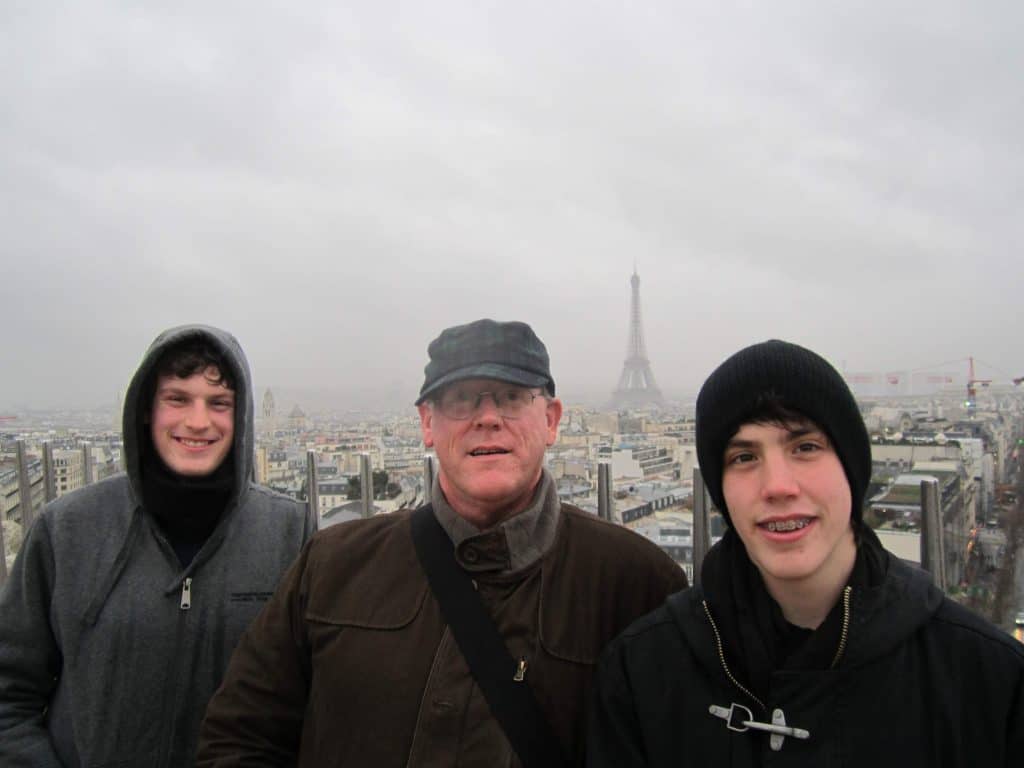
I thought I might follow Wade Needham’s reflections and thoughts with my own. Indulgent? Maybe.
How did you get into Health & Safety?
My first contact with workplace health and safety was as an Administrative Officer in the Victorian Department of Labour in the late 1980s before moving to the Occupational Health and Safety Authority, the precursor to WorkSafe Victoria, in the early 1990s. I worked in the Major Hazards Branch and was involved in preparing options for the relocation of the Coode Island chemical storage facility before it exploded.
What drives you?
The Health and Safety profession has been notoriously shy in expressing opinions for many reasons including timidity, insecurity and laziness. This reluctance has contributed to the dominant perspective of H&S as a business nuisance rather than a profitable aid to business. My frustration with this caused me to write and speak about H&S as an unavoidable and legitimate element of business.
What helps you slow down?
Glass of wine and a good book is the easy answer, but I also welcome the isolation possible from wearing a helmet when riding motorcycles or motor scooters in the country. It’s particularly pleasant when it takes about an hour of riding to get to a client.
Regrets?
Hundreds but one of particular note was sitting on a plastic chair in a crowded café one morning in Melbourne and unexpectedly farting, very loudly.
The other regret is more recent – mentioning farting in a blog article.
Favourite fiction writer?
Diana Wynne Jones. I met her a couple of times and corresponded with her. Her books of Young Adult and Fantasy fiction have flown under the radar but are vivid and sometimes so complex, I still can’t understand what happened after several readings.

What is one trend you are watching keenly?
I never thought the Mullet would ever reappear! 🙂
It’s more an evolution than trend but watching OHS become a legitimate part of the corporate calculations of non-financial risk is important.
Person/s who you watch and take inspiration from in H&S that you think will have an increasing impact in the sector:
There is no one single person from within H&S. Australia has never had an H&S champion of national recognition, but I am very impressed by many of the young thinkers who have emerged from H&S and who are starting to analyse H&S in non-traditional contexts.
One individual I admired greatly and who had enormous potential to change our understanding of work-related psychological harm and suicides was Professor Allison Milner.
What are you most excited about in our sector?
As a man in my 50s, I have more frustrations than excitements, but I am trying to avoid crusty, old cynicism as it has never been healthy.
I am excited about the increasing recognition that H&S is most effectively achieved by personal, face-to-face communication. This applies to harm prevention and psychological health. The challenge is that this is an expensive option, but Cost is supposed to be one’s last consideration of practicable control measures. We need to keep pushing the long-term and cultural value of talking to each other.
No amount of Artificial Intelligence or teleconferencing will ever match the value of looking someone in the eye, listening to their story and suggesting options that might help.
What’s your favourite quote?
It’s more of a phrase. My Nana, Bess, used to preface many of her answers with “All being well”. She grew up in the north of England in the first half of last century and understood the basic fragility of life – war, poverty, the requirement to make do with what you had, unreliable electricity, and more. At that time, one needed to rely on community and family. You “dropped in” on people for a cuppa and a chat, and to see that they were safe, healthy and “alright’. There was a lot of adversity but also a lot of love. Bessie’s “all being well” acknowledged that uncertainty but was also a commitment to help, whenever she could.
Biggest issue facing the H&S profession?
That H&S is still largely considered a joke and a business nuisance.
What do you wish you had understood sooner?
How to avoid debt
What would you like to see to improve collaboration in our sector?
Allocating time and resources to talk with peers and colleagues in a range of business and professional sectors. Seeing professional development within business hours as a legitimate business activity.
What should you have been doing whilst you answered this?
Cleaning the gutters, trimming the hedge, sweeping the path, and applying for jobs.
If you are a SafetyAtWorkBlog subscriber and would like to contribute, email your responses to the following questions:
- How did you get into Health & Safety?
- What drives you?
- What helps you slow down?
- Regrets?
- Favourite nonfiction writer?
- What is one trend you are watching keenly?
- Person/s who you watch and take inspiration from in H&S that you think will have an increasing impact in the sector:
- What are you most excited about in our sector?
- What’s your favourite quote?
- Biggest issue facing the H&S profession?
- What do you wish you had understood sooner?
- What would you like to see to improve collaboration in our sector?
- What should you have been doing whilst you answered this?
